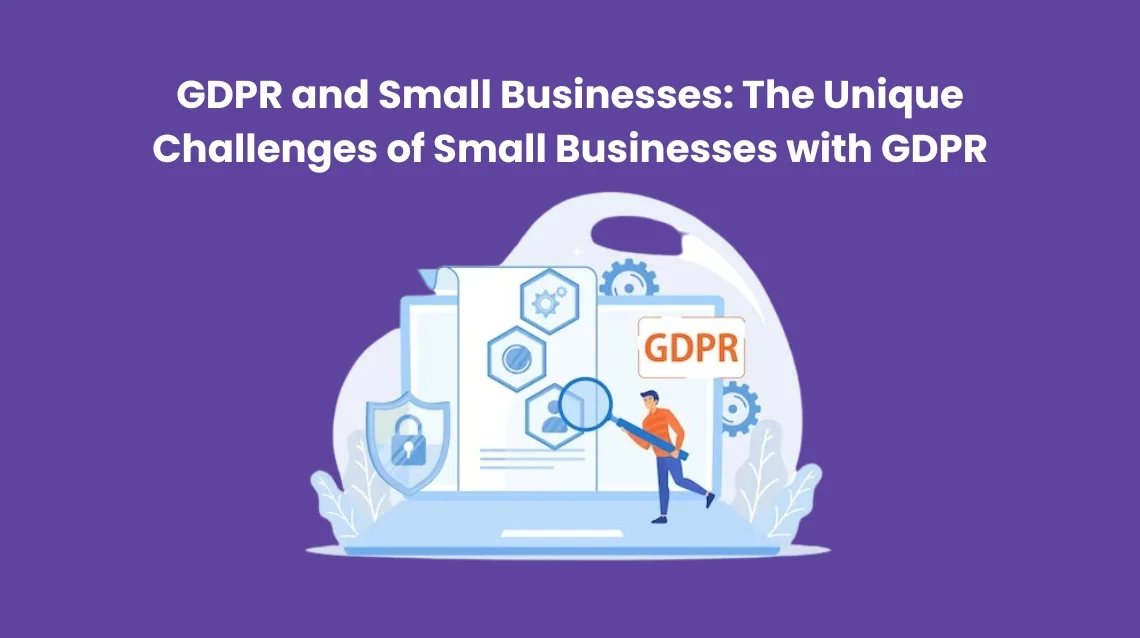The General Data Protection Regulation (GDPR) stands as a formidable cornerstone in data protection and privacy legislation, mandating businesses globally to safeguard the privacy of individuals’ personal data. Small companies have a unique set of challenges, often different from those faced by their bigger counterparts, even though GDPR Training has become essential for enterprises of all kinds.
In this blog, we will examine the finer points of GDPR, as well as the particular Challenges of GDPR small companies face.
Understanding GDPR for Small Businesses
Understanding the intricate web of GDPR requirements may be a difficult undertaking for small organisations. The stakes are high since careful record-keeping, open data processing procedures, and strict consent procedures are required. Therefore, GDPR training is essential to ensure that small company owners and employees understand the nuances of this rule.
The Challenges of GDPR for Small Businesses
Resource Limitations
Limited resources are one of the main GDPR challenges that small companies must deal with. Small firms often work with tight budgets, in contrast to large organisations that have well-stocked legal and compliance teams. Because GDPR compliance requires time, effort, and sometimes outside expertise, it may be quite expensive, even with GDPR training.
Complex Data Handling Processes
Comparing small enterprises to huge corporations, the former often have simpler data handling procedures. However, they still have to follow the complex GDPR requirements.To achieve this, a detailed grasp of the data lifecycle and the creating of internal procedures compliant with GDPR guidelines are necessary.
Navigating GDPR Compliance
Data Protection Impact Assessments
The Data Protection Impact Assessment (DPIA) is a vital tool that small companies may use to handle the challenges of GDPR. This tool assists in identifying and reducing hazards related to data processing operations. Small firms benefit most from DPIAs because they provide an organised method for identifying compliance gaps and setting priorities for remedial action.
Consent Management
One of the most important components of GDPR compliance is obtaining and maintaining permission. Small enterprises need to get unambiguous and explicit permission from people before processing their data. Businesses can efficiently traverse the GDPR challenges by learning about the complex requirements for acquiring and managing permission via GDPR training.
Data Security and Breach Notification
Strong security measures are essential for small companies to safeguard customer information against hacks. Notifying parties of a breach in a timely and correct manner is required. There are harsh consequences for breaking the breach notification rules. GDPR training gives small companies the skills and information to set up strong security procedures and react quickly to security incidents.
Engaging with Stakeholders
Customers may feel more at ease if data processing procedures are transparent and there is ongoing communication on the actions performed. In today’s privacy-conscious world, small companies may use GDPR compliance as a marketing strategy to demonstrate their dedication to data security and privacy, which can be a differentiator.
Conclusion
GDPR has brought a new age of accountability and responsibility for data protection. This calls on small enterprises to address GDPR’s challenges with care and knowledge. An essential component of guaranteeing compliance, reducing risks, and protecting small companies’ operations and reputation is proper GDPR training. Small businesses can navigate the GDPR landscape successfully by recognising the specific challenges they face and actively seeking solutions.
One thing is certain as small companies continue to adjust and develop in a world dominated by GDPR: all organisations, regardless of size, must display a commitment to data security and privacy. This is not only the responsibility of multinational behemoths. A proactive approach to the challenges posed by GDPR, together with GDPR training, may enable small companies to prosper in a climate that prioritises trust, ethics, and data security.
